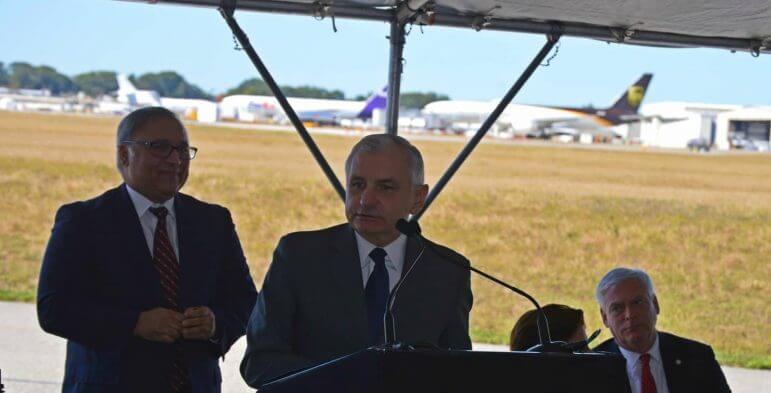

WASHINGTON, DC – As COVID-19 spells turbulence for the airline industry, the CARES Act delivers $50 billion in aid, which U.S. Senator Jack Reed (D-RI) said has a safe landing for taxpayers, too.
The rescue package is intended to save hundreds of thousands of jobs and ensure air travel remains safe, reliable, and a viable connection for people, communities, and our economy.
The amount of the airline rescue package is just $5 billion more than what the five largest U.S. airlines paid out to shareholders and executives over the last five years, according to data from public filings. According to Bloomberg, major air carriers have directed 96 percent of their free cash flow over the last decade to buying back their own shares, which has come at the expense of investing in priorities that could have better positioned airlines for a downturn.
In order to protect taxpayers, and ensure the American people don’t just assume all the risk while investors and executives reap all the financial rewards, Reed included a provision in the CARES Act providing the federal government the ability to secure through ‘warrants,’ non-voting equity shares in airlines that choose to seek taxpayer assistance. A stock warrant is a contract between a company and an investor that provides the investor the option to purchase a share of the company’s stock at a specific price.
Reed’s warrants provision ensures taxpayers — and not just investors and executives — benefit when the economy recovers and the company’s share price rebounds. It is modeled on a warrants law Reed wrote in the 2008 bank bailout package that successfully returned nearly $10 billion in profits to U.S. taxpayers as the banks recovered. Without Reed’s law, investors and executives would have pocketed all the profits, and taxpayers wouldn’t have been compensated appropriately for assuming the risks.
Reed credited investor Warren Buffet for sparking the idea: “When Warren Buffet makes investments in struggling companies that eventually turn around, he is lauded as an astute investor and reaps billions in profits. Similarly, if taxpayer funds are needed, the terms must be fair, and taxpayers should be rewarded for helping struggling companies turnaround.”
This is a test
